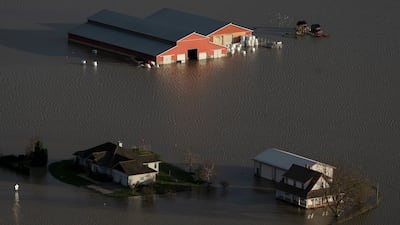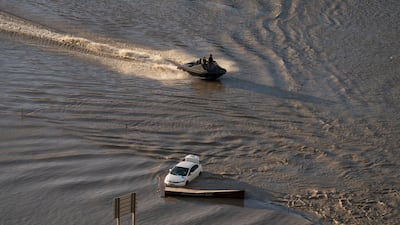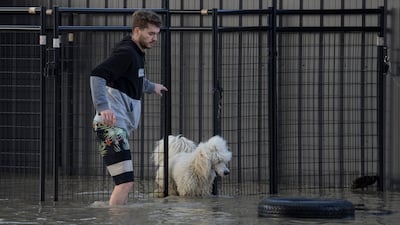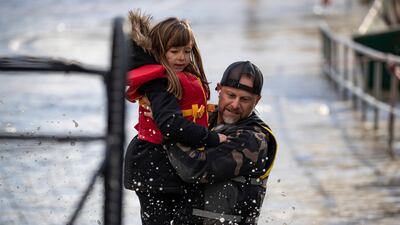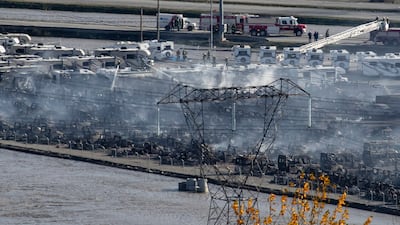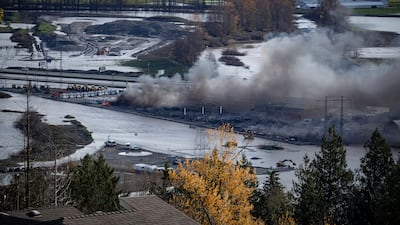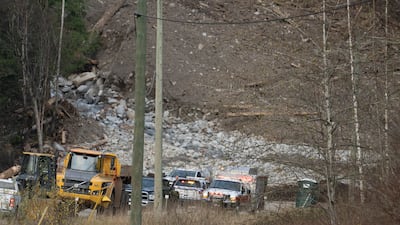The Canadian province of British Columbia has declared a state of emergency following floods and mudslides caused by heavy rainfall — as officials say they expect to find more people dead.
Every major route between the Lower Mainland of British Columbia, where Canada’s third-largest city of Vancouver is, and the interior of the province have been hit by washouts, flooding or landslides following record-breaking rain across southern British Columbia between Saturday and Monday. The body of a woman was recovered from one of the mudslides late on Monday.
“Torrential rains have led to terrible flooding that has disrupted the lives and taken lives of people across BC. I want people to know that the federal government has been engaging with the local authorities,” Canadian Prime Minister Justin Trudeau said in Washington. “We’re sending resources like the Canadian Armed Forces to support people but also we’ll be there for the clean-up and the rebuilding after impacts of these extreme weather events.”
The federal government said it was sending the air force to assist with evacuations and support supply lines.
Military helicopters already helped to evacuate about 300 people on Sunday night from a motorway where people were trapped in their cars following a mudslide.
“We expect to confirm even more fatalities in the coming days,” British Columbia Premier John Horgan said.
He called it a once-in-a-500-year event, and said the state of emergency will include travel restrictions so essential goods, medical and emergency services will reach communities in need. He asked people not to hoard goods.
“These are very challenging times. I’ve been at this dais for two years now talking about challenging times we have faced — unprecedented challenges with public health, wildfires, heat domes and now debilitating floods that we have never seen before,” Mr Horgan said.
A future with more flooding
He said over the past six months there have been drought conditions in Merritt, where the river was at its lowest point in living memory and where people had to be evacuated because of wildfires in temperatures that were unprecedented. And now, he said, much of the community is under water.
“We need to start preparing for a future that includes more events like this,” Mr Horgan said.
The weather events are all connected and can be attributed to climate change, said John Clague, a professor in the earth sciences department at Simon Fraser University.
“Scientists are now saying these particular events, they’re becoming more frequent, exacerbated or ramped up by climate change,” he said.
The record temperatures in the summer set the stage for the wildfires, said Mr Clague. The fires burnt the ground in a way that prevents water from seeping into the soil. He said that resulted in the water from the torrential rains pouring more quickly into steams and rivers, causing floods.
The total number of people and vehicles unaccounted for had not been confirmed near the town of Lillooet. Investigators had received reports of two other people missing but added other motorists might have been buried in a slide on motorway 99.
Agriculture Minister Lana Popham said thousands of animals had died and the province was rushing to get veterinarians to other animals in danger.

